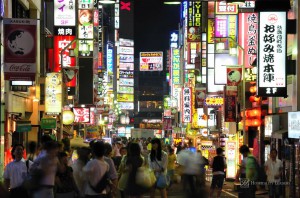
As the number of tourists visiting Japan spiked to a record high in 2013, hoteliers are moving in on the region to capitalize on the boom.
Last week, government data showed that a record 11.25 million tourists visited Japan last year, up 22.7 percent from a year earlier. Analysts say a combination of factors are involved, including a weaker yen, cheaper air fares, less strict visa requirements in the region, and an overall boost to Asia-Pacific tourism, which has seen tourist visits double since 2,000.
32-year old Emma Reynolds, who lives in London, England, told CNBC that she recently booked her honeymoon in Japan, after finding it more affordable than expected.
“I was looking for a honeymoon destination that was a little different, and since I’ve always wanted to go it seemed like the ideal time to visit on a trip of a lifetime,” Emma told CNBC.
“I had previously been put off as there seems to be a misconception that it is prohibitively expensive to visit, but after doing some research I found it to be affordable,” she added.
Regional hotel investment company Red Planet Hotels, the major shareholder of budget brand Tune Hotels, told CNBC it plans to open up 20 hotels by 2020 in Japan in a bid to benefit from this growing trend.
“There’s a lot of tourism now being encouraged into Japan and we’re going to use the familiarity of the Tune concept to attract those international visitors,” Tim Hansing, CEO of Red Planet Hotels told CNBC Asia’s?”Squawk Box”?on Tuesday.
Hansing told CNBC he was hoping to tap into a gap in the market in Japan, by offering a more fun concept of budget hotels.
“Our unique selling point is that we’re young, bright, energetic and fun, because the budget hotels sector in Japan is very boring, poor value for money and very tired,” he added.
Japan’s spike in tourism numbers coincides with policy makers’ most aggressive attempt to drag the economy out of prolonged deflation in decades. Prime Minister Shinzo Abe’s radical economic policies, introduced in late 2012, helped power the country’s stock market nearly 60 percent higher over the course of 2013, while the currency has depreciated 18 percent against the dollar in the same period.
Click here to read more.

